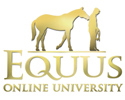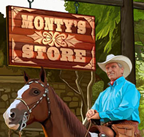I recently received and email/news letter from this site,which are regular,on the subject about Disrespectful Behaviour in the round pen,an interesting read,and a subject i can relate to.
The question to Monty was,is it disrespectful for a horse to turn its rear to you in the round pen?
From my own personal experiences,it depends on the horses attitude,if he /she is a well mannered horse and just needs some extra attention,and then turns its rear in the process,i would firstly try and find out why?is there something bothering it round the head area,or maybe there is an issue with its rump or tail that is irritating it,or its just playing hard to get,but i certainly would not punish it for doing so.
I have never lost my temper with any horse while training,i have seen people punch slap shout and strike with a stick,out of impatience,usually round the head if its trying to dislodge the handler or if it just will not stand still to have its feet trimmed,this act of violence really annoys me,as i know the horse is behaving the way it is out of uncertainty of what i am doing,repetition and calmness for how ever long it takes,training should never be rushed,being calm and patience,is 100% the key to success.
If i knew the horse well,then i would say it could be anything,to try an avoid head contact with what ever is being used to turn it,a friendly trust worthy horse would turn head inwards out of trust,and probably wandering why he/she is in a round pen in the first place!
Secondly,an unhandled horse that has had no contact or very little contact with people would most certainly turn rear first to flee from a situation it is not use to,if i tried this in a paddock or corral outside,it would jump the fence,and i would never get near it again,so trust is the starting point,and i would never ever punish a nervous horse for turning.
Most head shy horses that i have tried to put head collars on have had some bad experiences,i say this,because if they did not have a bad experience,they would have nothing to fear from a head collar,and would allow you to put it on them,out of trust.getting them to walk with it on how ever can be a challenge,as i have found out.
Its not much of read,i hope i have written some good points in there.
Michael.




Jo.